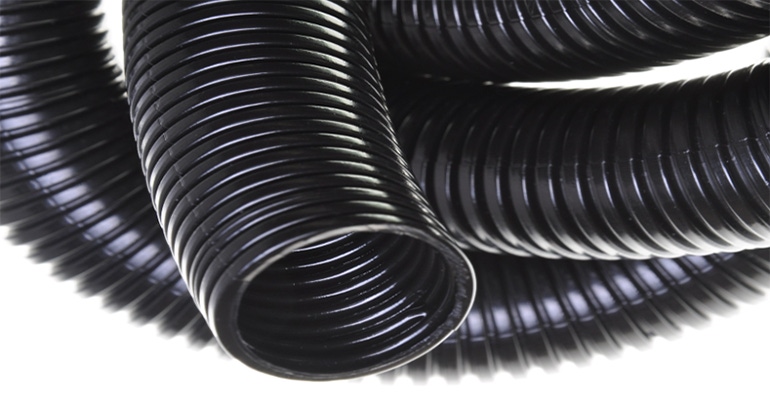Graphene Nanotubes Prevent Static Electricity Buildup in TPU Hoses
Unlike conventional electrostatic discharge protection methods, graphene nanotubes won’t negatively affect TPU properties.
January 19, 2023

When dry bulk materials are conveyed by compressed air through a nonconductive hose, the friction can cause static electricity to build up. This can lead to sparks, resulting in damage to electronic components, and even fires or explosions. To prevent accumulation of an electrical charge in a conveying hose, conductive material enhanced with metal wire is typically used. The use of traditional conductive agents, such as carbon black, require high concentrations, however, which may affect the mechanical properties of the final product, including reduced flexibility. Thermoplastic polyurethane (TPU) modified with graphene nanotubes can prevent electrostatic buildup without affecting hose strength or flexibility, according to Christian Maus, PhD, Development and Support Leader for Thermoplastics at OCSiAl Group.
“Replacement of a standard compound with TPU modified with graphene nanotubes results in stable, homogeneous conductivity of the final hoses, without compromising their strength or flexibility,” said Maus. “By adding only 0.4 to 0.5 wt% of graphene nanotubes, our client was able to obtain thermoplastic polyurethane with resistance on the order of 106 ohm/sq, allowing the hoses to meet the typical requirements of industrial norms related to electrostatic risks. Additionally, graphene nanotubes’ low working dosages make it possible to maintain the abrasion and chemical resistance, flexibility, and non-marking properties of TPU,” said Maus.
The nanotube-modified hoses meet the demands of heavy-duty operating applications, which frequently require a combination of electrostatic discharge protection and high abrasion resistance and durability. The industrial TPU hoses can be widely used in pneumatic and aspiration systems for pumping or transporting materials with high abrasive properties, including abrasive powders, sawdust, chopped paper, construction waste, petroleum products, and crushed or granular materials, said the OCSiAL Group.
You May Also Like


